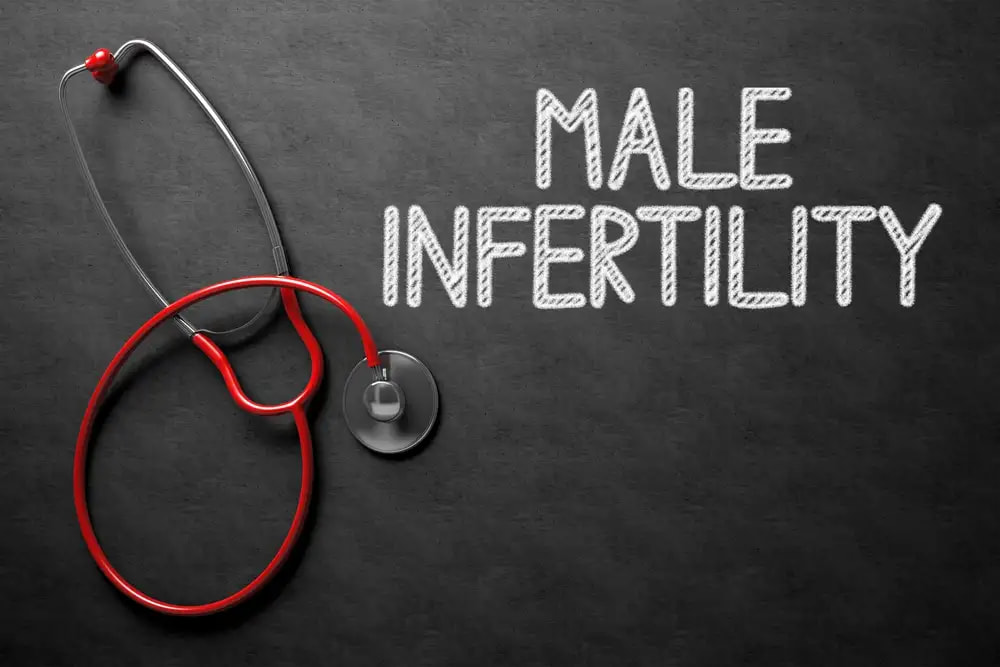Home

Top 4 Kinds of Infertility Treatments to Cure Male Infertility
In this Article

Fertility Problems
Top 4 Kinds of Infertility Treatments to Cure Male Infertility
Updated on 27 June 2023
Infertility is a common problem that affects millions of couples worldwide. According to the World Health Organization, around 15% of all couples experience infertility at some point in their lives. While there are a variety of factors that can contribute to infertility, male infertility is a significant issue that is often overlooked. Fortunately, there are a variety of treatments available to help men overcome infertility and increase their chances of starting a family.
In this article, we will explore the top 4 kinds of infertility treatments that can help men overcome male infertility and achieve their dream of becoming a father. But first, let us understand the causes of infertility in men and how to diagnose male infertility.
What is Male Infertility?
Male infertility refers to any health issue in a man that lowers the chances of his female partner getting pregnant. It can be caused by low sperm production, abnormal sperm function, or blockages that prevent the delivery of sperm. The main sign is the inability to conceive a child, but other signs or symptoms include sexual function problems, pain or swelling in the testicle area, and a lower than normal sperm count. Male fertility problems can be treated without surgery, and the treatment may depend on the underlying cause.
Top Causes of Male Infertility
Many different factors can affect a man's fertility. Here are some of the most common causes of male fertility problems:
1. Age
According to research, as men age, their fertility declines. This is due to a decrease in the number and quality of sperm. Also, sperms lose their viability with age, making it even more difficult to conceive.
2. Low sperm production
Low sperm count can be caused by various factors such as hormonal imbalances, genetic disorders, medical conditions, or radiation exposure.
3. Abnormal sperm function
Sperm may be unable to move properly (low sperm motility) or have poor morphology. This may be caused by certain genetic disorders, infections, or exposure to toxins.
4. Blockages
Blockages in the tubes that carry sperm (ejaculatory duct obstruction) can prevent the delivery of sperm during ejaculation. This can be caused by infections, injuries, or congenital abnormalities.
5. Genetic problems
In some cases, fertility problems are due to genetic factors. This may be the case if there is a family history of fertility problems. Some genetic disorders, like Klinefelter's syndrome or cystic fibrosis, can impact male fertility.
6. Hormonal Imbalance
Furthermore, an imbalance of hormones like testosterone, follicle stimulating hormone (FSH) or luteinizing hormone (LH) can lead to fertility problems.
7. Lifestyle factors
Being overweight or obese, smoking, marijuana or alcohol use, exposure to environmental toxins, and certain medications can also affect male fertility.
It is important to note that infertility is diagnosed after one year of unprotected sex if the female does not get pregnant. If you suspect that you or your partner may be experiencing infertility, it is recommended to seek medical advice and counseling from healthcare providers experienced in dealing with infertility issues.
How is Male Infertility Diagnosed?
There are a few different ways to diagnose male infertility. The most common way is through a semen analysis, which will look at the count, motility, and morphology of the sperm. This can give a good indication of whether or not a man is fertile.
Other ways of diagnosing male infertility include a blood test to check hormone levels and a scrotal ultrasound to look at the size and structure of the testicles. In some cases, a biopsy of the testicles may also be required.
For people concerned about their fertility, it is important to speak to a doctor who can help them understand the best way to move forward. There are many treatments available for couples who are struggling to conceive. Many men can overcome fertility problems and father a child with proper diagnosis and treatment.
You may also like: Fertility Test for Men and Women: What to Expect and Next Steps
Top 4 Male Infertility Treatments
Different male infertility treatments are available, and the best one will depend on the underlying cause of a person’s infertility. Here are the top four male infertility treatments:
1. Hormone Therapy
If your infertility is due to low levels of certain hormones, hormone therapy can be an effective treatment. This may involve taking medication to increase hormone levels or receiving injections of hormones.
2. Surgery
If a blockage prevents sperm from getting to the egg, surgery may be necessary to remove the blockage. This could involve a vasectomy reversal or surgery to repair a blockage in the ejaculatory ducts.
3. Assisted Reproductive Technologies (ART)
If other treatments are not effective, ART may be an option. This involves using assisted reproductive technologies such as in-vitro fertilization (IVF) to fertilize an egg outside the body and implant the embryo into the uterus.
4. Intracytoplasmic Sperm Injection (ICSI)
This type of ART is used when there are low sperm counts or poor sperm quality. ICSI involves injecting sperm into an egg and implanting the embryo into the uterus.
Closing Thoughts
Male infertility can be caused by various factors, including low sperm count, poor sperm quality, or blockages in the reproductive system. Treatment for male infertility often depends on the underlying cause. For any couple having trouble conceiving, it's important to see a fertility specialist to get a full evaluation. They will be able to recommend the best course of treatment to help the couple conceive.
References
1. Dabaja AA, Schlegel PN.(2014).Medical treatment of male infertility. Transl Androl Urol.
2. Assidi M. (2022). Infertility in Men: Advances towards a Comprehensive and Integrative Strategy for Precision Theranostics. Cells.



Written by
Madhavi Gupta
Dr. Madhavi Gupta is an accomplished Ayurvedic doctor specializing in Medical content writing with an experience of over 10 years.
Read MoreGet baby's diet chart, and growth tips

Related Articles
Related Topics
RECENTLY PUBLISHED ARTICLES
our most recent articles

Sleep
Sleeping positions during pregnancy

Sex Life
Burning Sensation After Sex: What Could It Mean

Hormones
Hormonal Imbalance in Men: What You Need to Know About Its Hidden Effects

Fertility
Kapikacchu: The Secret Ingredient for Boosting Fertility and Libido

Health & Wellness
Safed Musli: The Secret Ingredient to Boost Your Immune System and Lifestyle

Blurred Vision
What Causes Blurred Vision During Pregnancy & How to Deal With It?
- Suffering from Insomnia during your Pregnancy: Here are the Symptoms and Solutions
- Original Shilajit: The Key to Unlocking Your Health and Wellness Goals
- Pregnancy Induced Hypertension : Symptoms, Causes & Treatment
- 10 Amazon Prime Series to Look Forward to in 2023
- Nipple Shield 101: Everything You Need to Know Before Trying One
- All About Stem Cells, Their Usage and Potential Effectiveness in the Treatment of Different Diseases
- How to Manage Your Gestational Diabetes? Find 5 Easy Ways to Maintain the Sugar Level in Pregnancy and Stay Healthy!
- How to Get Rid of Flat Nipples to Breastfeed Your Baby Effectively
- The Ultimate Guide to Egg Retrieval: Everything You Need to Know
- Loss of Libido: Causes, Symptoms, and Treatment
- Top 10 Romantic Movies to Watch on Netflix in 2023
- Top 10 Romantic Shows to Watch on Netflix in 2023
- Top 10 Thriller Movies to Watch on Netflix in 2023
- Top 10 Thriller Shows to Watch on Netflix in 2023


AWARDS AND RECOGNITION

Mylo wins Forbes D2C Disruptor award

Mylo wins The Economic Times Promising Brands 2022
AS SEEN IN

- Mylo Care: Effective and science-backed personal care and wellness solutions for a joyful you.
- Mylo Baby: Science-backed, gentle and effective personal care & hygiene range for your little one.
- Mylo Community: Trusted and empathetic community of 10mn+ parents and experts.
Product Categories
Baby Carrier | Baby Soap | Baby Wipes | Stretch Marks Cream | Baby Cream | Baby Shampoo | Baby Massage Oil | Baby Hair Oil | Stretch Marks Oil | Baby Body Wash | Baby Powder | Baby Lotion | Diaper Rash Cream | Newborn Diapers | Teether | Baby Kajal | Baby Diapers Pants | Cloth Diapers | Laundry Detergent | Lactation Granules |








